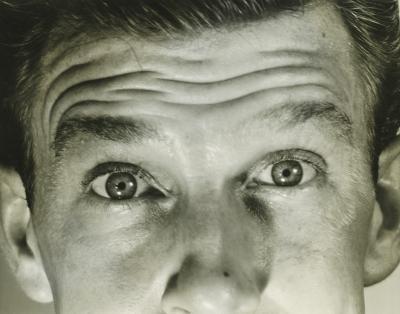To Practise Or Not To Practise…
July 18, 2014 | By Rachel Hankey |
Ever woken up and for a few dizzying seconds, tried to place the day? Thought, oh no, is it Monday? Then, gratifyingly realised with immense joy it’s actually a Saturday? That’s one of the better ‘coming-to’ realisations. One of the worst is ‘Oh, its speech day, I forgot to practice it.’ Although, why worry? Some people clearly don’t need to, Midas being one. Why not start just unshackle oneself from the notion that practice makes perfect, that doing something ten thousand times over makes you an expert, that honing your craft, makes you a craftsman?
 How about this instead and it is just an idea but if you have a speech coming up, think about it for a bit, crack open a beer or pour a long cool drink and then just put your feet up. If something interesting on the telly or a good book comes along to distract you then don’t bat it away, after all, it is only a speech. Let’s face it, you have a lifetime of words, wit and experience within you, surely when the time comes and you’re standing in front of an eager (or bored witless) audience, your charisma will ignite a trail of neon bulbs around you and the magic will simply HAPPEN.
How about this instead and it is just an idea but if you have a speech coming up, think about it for a bit, crack open a beer or pour a long cool drink and then just put your feet up. If something interesting on the telly or a good book comes along to distract you then don’t bat it away, after all, it is only a speech. Let’s face it, you have a lifetime of words, wit and experience within you, surely when the time comes and you’re standing in front of an eager (or bored witless) audience, your charisma will ignite a trail of neon bulbs around you and the magic will simply HAPPEN.
That’s right. An amazing, intelligent, well formed, string of engaging, informative sentences will samba from your lips, captivating and enchanting your audience. You’ll hear gasps of rapture and delight, little titters of mirth and deep hooting belly laughter. You’ll cast your eyes across of sea of people transfixed by the power of your presence. You’ll move easily and confidently within your space and your breathing will be calm and strong. Your voice will be clear and melodic and despite your well-rehearsed script you will feel comfortable ad-libbing.
Unless you are in fact Midas, you may find in order to achieve the above you may need to put the beer down and practice. However, it is all more or less within reach. And it really is true that the more you do it, the better you get AT it. (David Beckham didn’t spend his junior school years practicing his corners for nothing.) In fact everyone who is brilliant at someone generally spent years learning how to be brilliant at it. So the more you DO practice ‘speaking’ the better you will become at it, the more natural it will be, the smoother the flow.
Supposing though you are asked to stand up and speak with almost no notice at all. What can you do when you are completely ill-prepared?
- Smile. As terrified as you might feel on the inside, if you can try and fake it and look relaxed it’s a better experience for your audience and it will soon help you feel better too.
- If you are speaking formally, then have some notes to refer to. It’s fine to refer to them. Remember to look at the people you are speaking to and engage with them. People are more important than notes.
- Breathe!! – In through your nose and out through your mouth, and speak slowly. If you’ve been put on the spot, you’ll feel tense you don’t want that to come across. You’re only human, just like your listeners, so act/be as cool as a cucumber and chill.
When you really do have to wing it, the above can tide you over but why be a ‘last-minute Larry/Linda’ when you can get prepare and deliver a performance to be proud of?




 I’m often on the train. I actually enjoy train journeys simply because I get to indulge in one of my favourite past-times; people watching.
I’m often on the train. I actually enjoy train journeys simply because I get to indulge in one of my favourite past-times; people watching. ‘Well you weren’t with Pete!’ she asked, leaning forwards across the table. I assume she was scanning his face for clues. His eyebrows shot up and his forehead wrinkled. (This can be a sign of a liar caught in the act). He looked up to the right. ‘I was at work, I was going to meet Pete but I had to stay for a meeting, for God’s sake.’ Note this, right handed people usually look to the left to recall memories, and to the right when they are in the act of making something up.
‘Well you weren’t with Pete!’ she asked, leaning forwards across the table. I assume she was scanning his face for clues. His eyebrows shot up and his forehead wrinkled. (This can be a sign of a liar caught in the act). He looked up to the right. ‘I was at work, I was going to meet Pete but I had to stay for a meeting, for God’s sake.’ Note this, right handed people usually look to the left to recall memories, and to the right when they are in the act of making something up. Unfortunately, I reached my destination not long afterwards and I will never know if conservation was made, or numbers were swapped.
Unfortunately, I reached my destination not long afterwards and I will never know if conservation was made, or numbers were swapped.
